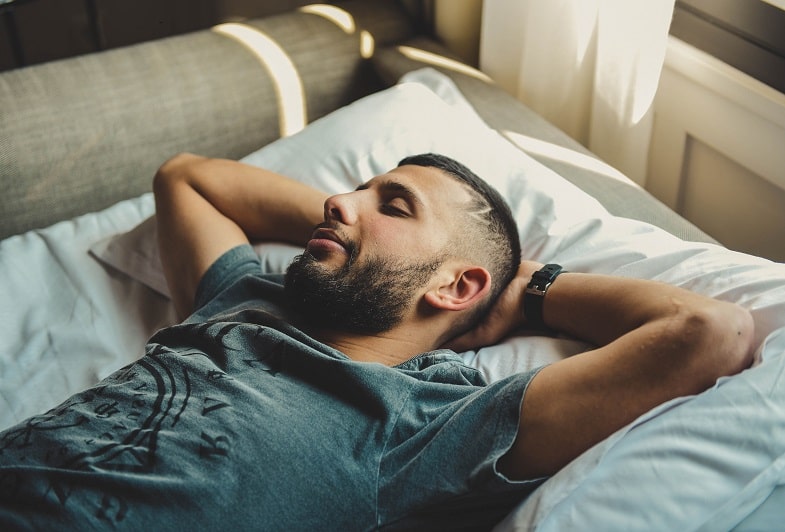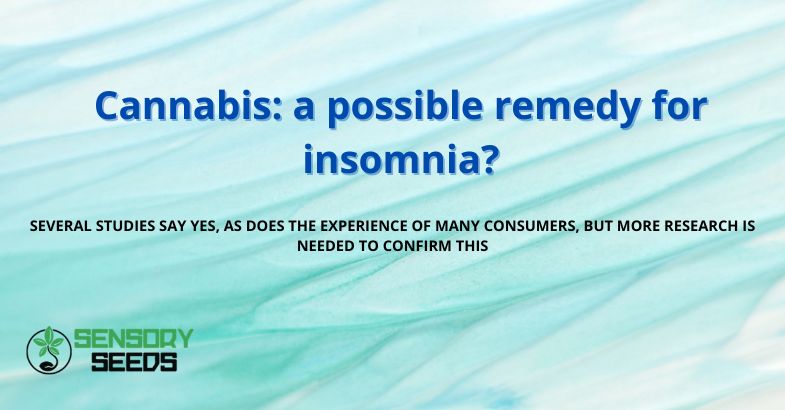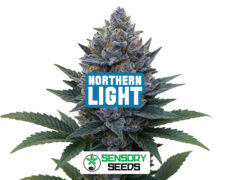Published on: 30/08/2023
SEVERAL STUDIES SAY YES, AS DOES THE EXPERIENCE OF MANY CONSUMERS, BUT MORE RESEARCH IS NEEDED TO CONFIRM THIS
Sleep occupies about 25% of life and is fundamental to human psychophysical well-being. Sleep-related problems not only impair people’s quality of life, but can also compromise their health.
Can the properties of cannabis help counteract sleep disorders and combat insomnia?
Sleep and insomnia: how they work and their influence on the body
Sleep is fundamental to human health has been known for a long time. Sleep is crucial for many reasons: in addition to slowing down physiological functions, sleep strengthens and at the same time clears the memory, influences learning, productivity and even problem solving. But that’s not all: research shows that sleep also affects weight and heart health.
The sleep cycle has three phases: wakefulness, non-REM phase (around 75%) and REM phase, which in short is the phase when we dream and brain activity, despite sleep, is very intense.


On average, you should sleep between 7 and 8 hours, but the amount of sleep needed for rest is individual, and variations should be minimal.
If something disturbs the sleep cycle, we speak of “dissonance” or, in fact, sleep disorders: insomnia is part of this, with symptoms such as difficulty falling asleep, poor sleep quality, early awakening. The causes may be physiological (stress, anxiety, pregnancy, menopause) or external to the subject (e.g. night shifts at work). Insomnia can impair the quality of life to such an extent that it can become a disabling condition.
Read also: Physical activity and cannabis: why they could be a good combination in the future
Can cannabis help control the symptoms of insomnia?
The sedative effects of cannabis and weed seeds have been known for millennia, but only modern scientific research has provided some evidence, to be investigated with further studies, of cannabis’ ability to induce a state of relaxation.
For decades, scientific research has investigated whether cannabis actually promotes sleep and combats insomnia. Some of these studies show encouraging results: a retrospective analysis conducted in 2017 showed that cannabis reduces the time to fall asleep in patients with insomnia by at least 30 minutes and in those suffering from other sleep disorders by about 15 minutes.
In addition, a recent survey of 1,500 patients in New England showed a reduction in the use of sleep medications in patients using cannabis.
Another study in 2021 using Sativex, a spray containing doses of THC and CBD, provides interesting answers for chronic pain sufferers: cannabis seems to make it easier for patients to sleep.
It is precisely the two main cannabinoids in cannabis, THC and CBD, that have an effect on sleep.
CBD appears to have the ability to modulate the serotonin 5-HT receptor with antidepressant, anxiolytic and neuroprotective effects.


Research from 2004 shows that high doses of CBD have a sedative effect, as opposed to low doses which have the opposite effect. A 2007 study found that CBD and THC increase levels of adenosine, a neurotransmitter that binds to A1 and A2 receptors, molecules in the brain that trigger sleep.
However, another study, conducted a few years ago, showed how prolonged cannabis (from marijuana seeds) use can worsen sleep quality, especially after abstinence.
A 2013 trial evaluated the effects of orally administered THC on sleep in 13 chronic cannabis smokers: THC and 11-OH-THC (active metabolite) reduced sleep latency and effectively counteracted difficulty falling asleep. A 2014 study on cannabidiol considered the use of CBD to modulate sleep “plausible”, but underlined the need for further research.
Therefore, there is a need for further research on the potential of cannabis on insomnia and for further research with animal models and randomized trials; however, it should be added that reports, surveys and reviews on self-medication reveal that around 60% of users find benefit in using legal cannabis for insomnia.
Read also: The 5 essential nutrients for cannabis cultivation
In conclusion
Cannabis appears to have some efficacy as a remedy for insomnia, but robust studies are still needed, even though some research suggests that chronic use may have the opposite effect.
The sedative and insomnia-fighting effect of cannabis appears to be due to its CBD and THC content and its interaction with the endocannabinoid system, especially the two main endocannabinoids. Although studies still need to be conducted to understand the real efficacy of cannabis, there are numerous testimonies from people who find benefits in using cannabis in various forms (vaporization or edibles, for example) to sleep better.
Undoubtedly, the properties of medical cannabis to combat a serious and disabling disease such as insomnia will be investigated in studies and research in the coming years. All that remains is to await developments.
Collecting legal cannabis seeds?
You’ve come to the right place: check out our auto flowering and feminized seeds and complete your collection with top quality products!









